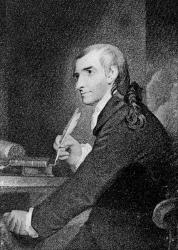Planning worship?
Check out our sister site, ZeteoSearch.org,
for 20+ additional resources related to your search.
- |
User Links
Search Results
The Lord Himself doth condescend
Appears in 7 hymnals Used With Tune: HE LEADETH ME Text Sources: New York Dutch Reformed Collection of Psalms. 1767
The Lord Himself doth condescend
HE LEADETH ME
Appears in 600 hymnals Composer and/or Arranger: William Batchelder Bradbury (1816-1868) Incipit: 53215 64465 33213 Used With Text: The Lord Himself doth condescend
HE LEADETH ME
[The Lord himself doth condescend]
Appears in 1,936 hymnals Tune Key: C Major Incipit: 11765 12333 32143 Used With Text: The LORD himself doth condescend
[The Lord himself doth condescend]
The LORD himself doth condescend
Hymnal: The Psalms of David #XXIII (1767) Lyrics: 1 The LORD himself doth condescend,
To be my Shepherd and my Friend;
I on his faithfulness rely;
His Care shall all my Wants supply.
2 In Pastures green he doth me lead,
And there in Safety makes me feed,
Refreshing Streams are ever nigh,
My thirsty Soul to satify.
3 When stray'd, or languid, I complain,
His Grace revives my Soul again;
For his Name's sake, in Ways upright,
He makes me walk with great Delight.
4 Yea, when Death's gloomy Vale I tread,
With Joy, ev'n there, I'll lift my Head;
From Fear and Dread he'll keep me free,
His Rod and Staff shall comfort me.
5 Thou spread'st a Table, Lord for me,
While Foes with Spite thy Goodness see;
Thou dost my Head with Oil anoint,
And a full Cup for me appoint.
6 Goodness and Mercy shall to me,
Through all my Life extended be;
And when my Pilgrimage is o'er,
I'll dwell with thee for evermore. Topics: Description of Confidence of Believers in Death; Thanksgivings For diverse Mercies shown to Believers Scripture: Psalm 23 Languages: English Tune Title: [The Lord himself doth condescend]
The LORD himself doth condescend
The Lord himself doth condescend
Hymnal: The Psalms of David #23 (1789) Lyrics: 1 The Lord himself doth condescend,
To be my shepherd and my friend;
I on his faithfulness rely;
His care shall all my wants supply.
2 In pastures green he doth me lead,
And there in safety makes me feed,
Refreshing streams are ever nigh,
My thirsty soul to satisfy.
3 When stray'd, or languid, I complain,
His grace revives my soul again;
For his name's sake, in ways upright,
He makes me walk with great delight.
4 Yea, when death's gloomy vale I tread,
With joy, ev'n there, I'll lift my head;
From fear and dread he'll keep me free,
His rod and staff shall comfort me.
5 Thou spread'st a table, Lord, for me,
While foes with spite thy goodness see;
Thou dost my head with oil anoint,
And a full cup for me appoint.
6 Goodness and mercy shall to me,
Through all my life extended be;
And when my pilgrimage is o'er,
I'll dwell with thee for evermore. Scripture: Psalm 23 Languages: English
The Lord himself doth condescend
The Lord himself doth condescend
Author: Francis Hopkinson Hymnal: The People's Hymn Book #32 (1887) Languages: English
The Lord himself doth condescend
William B. Bradbury

1816 - 1868 Person Name: William Batchelder Bradbury (1816-1868) Composer of "HE LEADETH ME" in Songs of Praise William Bachelder Bradbury USA 1816-1868. Born at York, ME, he was raised on his father's farm, with rainy days spent in a shoe-shop, the custom in those days. He loved music and spent spare hours practicing any music he could find. In 1830 the family moved to Boston, where he first saw and heard an organ and piano, and other instruments. He became an organist at 15. He attended Dr. Lowell Mason's singing classes, and later sang in the Bowdoin Street church choir. Dr. Mason became a good friend. He made $100/yr playing the organ, and was still in Dr. Mason's choir. Dr. Mason gave him a chance to teach singing in Machias, ME, which he accepted. He returned to Boston the following year to marry Adra Esther Fessenden in 1838, then relocated to Saint John, New Brunswick. Where his efforts were not much appreciated, so he returned to Boston. He was offered charge of music and organ at the First Baptist Church of Brooklyn. That led to similar work at the Baptist Tabernacle, New York City, where he also started a singing class. That started singing schools in various parts of the city, and eventually resulted in music festivals, held at the Broadway Tabernacle, a prominent city event. He conducted a 1000 children choir there, which resulted in music being taught as regular study in public schools of the city. He began writing music and publishing it. In 1847 he went with his wife to Europe to study with some of the music masters in London and also Germany. He attended Mendelssohn funeral while there. He went to Switzerland before returning to the states, and upon returning, commenced teaching, conducting conventions, composing, and editing music books. In 1851, with his brother, Edward, he began manufacturring Bradbury pianos, which became popular. Also, he had a small office in one of his warehouses in New York and often went there to spend time in private devotions. As a professor, he edited 59 books of sacred and secular music, much of which he wrote. He attended the Presbyterian church in Bloomfield, NJ, for many years later in life. He contracted tuberculosis the last two years of his life.
John Perry
William B. Bradbury
Francis Hopkinson

1737 - 1791 Author of "The Lord himself doth condescend" Francis Hopkinson; grad. College of Philadelphia with master’s degree; studied law and passed Pa. bar; opened conveyancer’s office in Philadelphia; musical and literary talent; prolific writer who frequently used pen name, A. B.
LOC Name Authority Files
Francis Hopkinson


 My Starred Hymns
My Starred Hymns


